Adults Only
Duvall, WA and other Northwest Locations
$1,995
Future Dates TBD
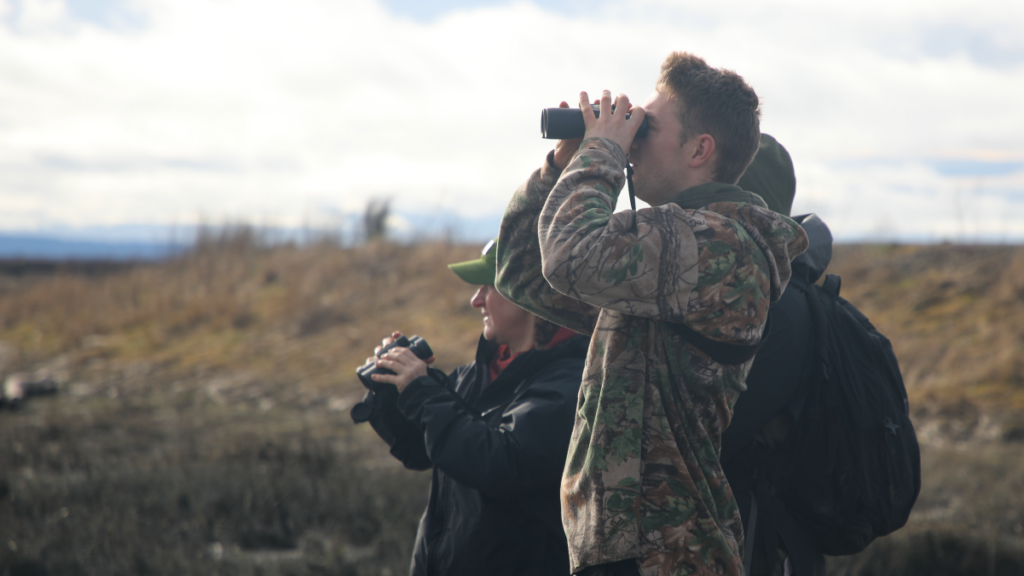
Supercharge your nature connection journey with an immersion into the ancient interspecies communication system of Bird Language. Weaving together cutting-edge science on bird behavior and ecology with the intuitive arts of sensory awareness, mindfulness, and storytelling, Bird Language invites you to reconnect with yourself, the human community, and the more-than-human world.
To explore Bird Language is to tap into a skill that all our ancestors needed in order to survive, for the same reasons other animals continue to attend to the avian announcers of the landscape: to eat and not be eaten. Honing this ancestral craft will open windows into fascinating interspecies dramas played out across an ecosystem. It will invite intimate encounters with wildlife we wouldn’t otherwise have known were present. And, it will welcome us home to a sense of belonging in our bodies and on the earth, which many of us have been longing for.
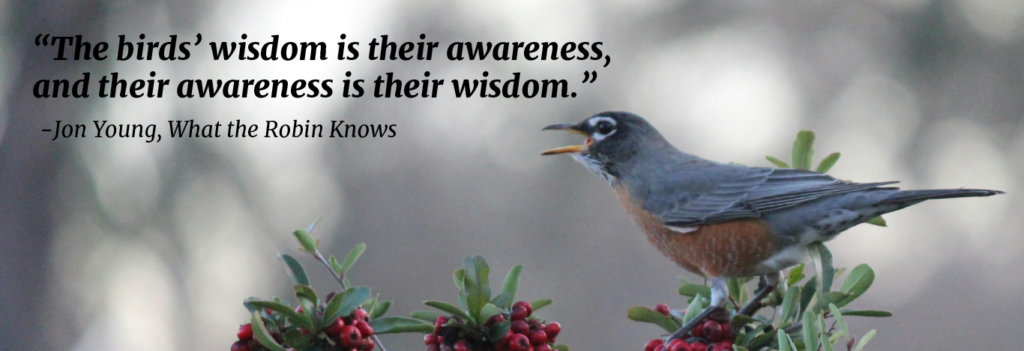
What’s Covered?
- We will visit a broad range of Washington habitats including the temperate rainforest, Salish Sea Coast, riparian valleys, forested foothills, Cascades mountains, and high deserts, to ground our learning among diverse species and ecological relationships.
- Each weekend will involve an engaging combination of brief themed lessons, active core routines of sensory awareness, ecologically focused bird walks and landscape exploration, as well as formal bird sits & sound mapping based on Jon Young’s Bird Language Leaders movement.
- We will also return regularly to our home base, the Snoqualmie Valley, to learn the patterns and nurture the connections within a single place over time – the foundation of any deep nature connection practice.
- A small class size allows us to develop a strong sense of community and camaraderie while accelerating the learning process over our eight months together.
- We’ll enjoy a weekend class schedule geared toward busy, working adults – typically Saturdays 9-4 and Sundays 7-2 – inviting spaciousness outside of class time for solo wanders, nature journaling, and personal reflection in each location.
- Each away location will include campground accommodations with an optional Friday evening arrival at some locations; those who would prefer other lodgings may make their own arrangements.
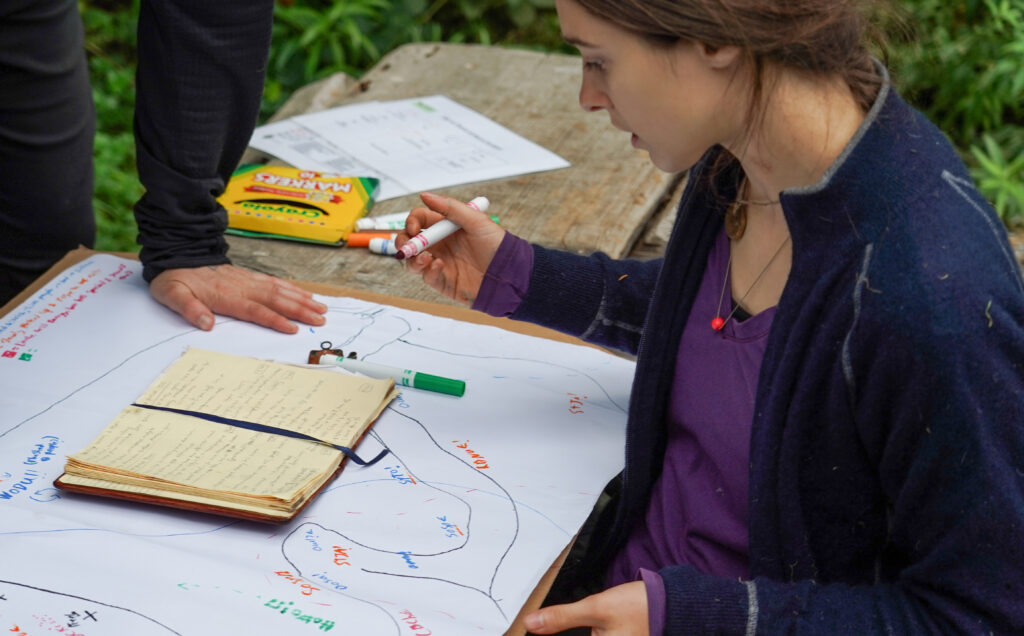
You’ll Learn To:
- Interpret complex bird vocalizations and behaviors
- Expand their understanding of ecological relationships
- Deepen sensory awareness and cultivate intuition
- Move quietly and safely through the landscape
- Hone mapping and naturalist journaling skills
- Gain intimate knowledge of common bird species
- Engage the Art of Questioning and storytelling
- Read the landscape to perceive disturbance patterns and solve mysteries
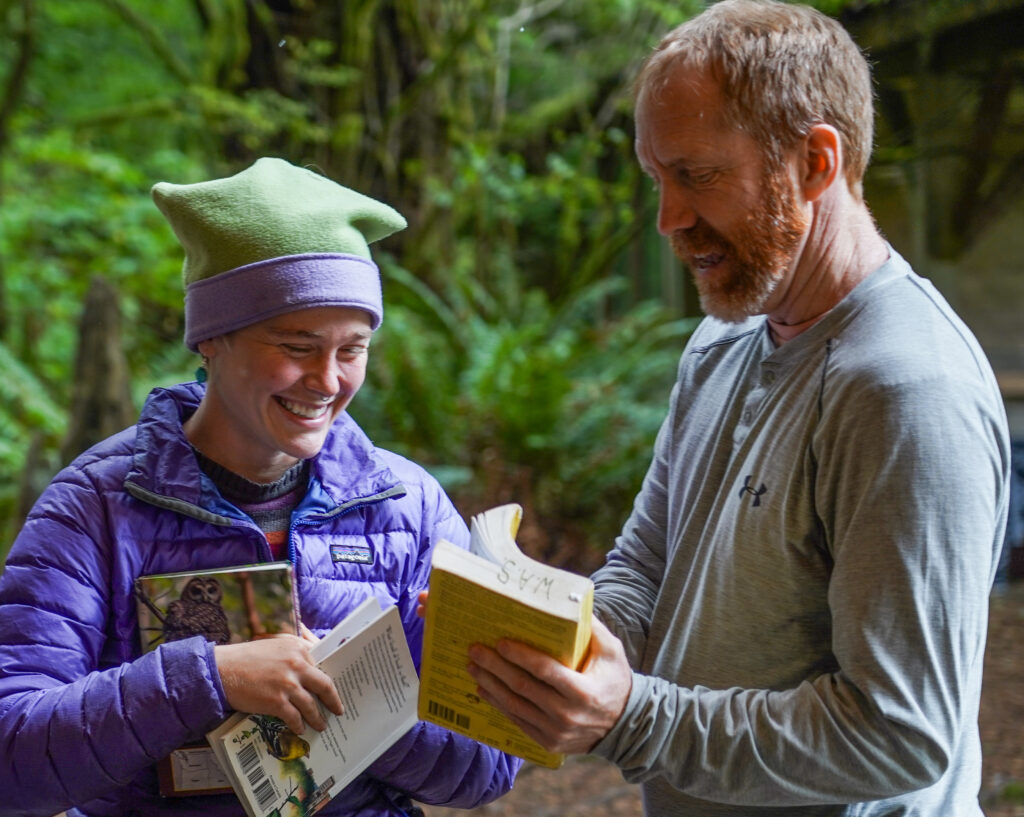
Wherever you are in your nature connection journey or whatever your level of naturalist or birding experience from novice to expert, we trust you’ll have much to gain and contribute to our learning community. We look forward to welcoming you into our inaugural year of Bird Language Intensive!
Class Schedule & Topics
Below is an outlined schedule of the eight class weekends, some of this is subject to change due to weather, migrations, and incredible opportunities that may arise.
March: Orientation, Core Routines, and Bird Language 101
Snoqualmie Valley – Duvall, WA
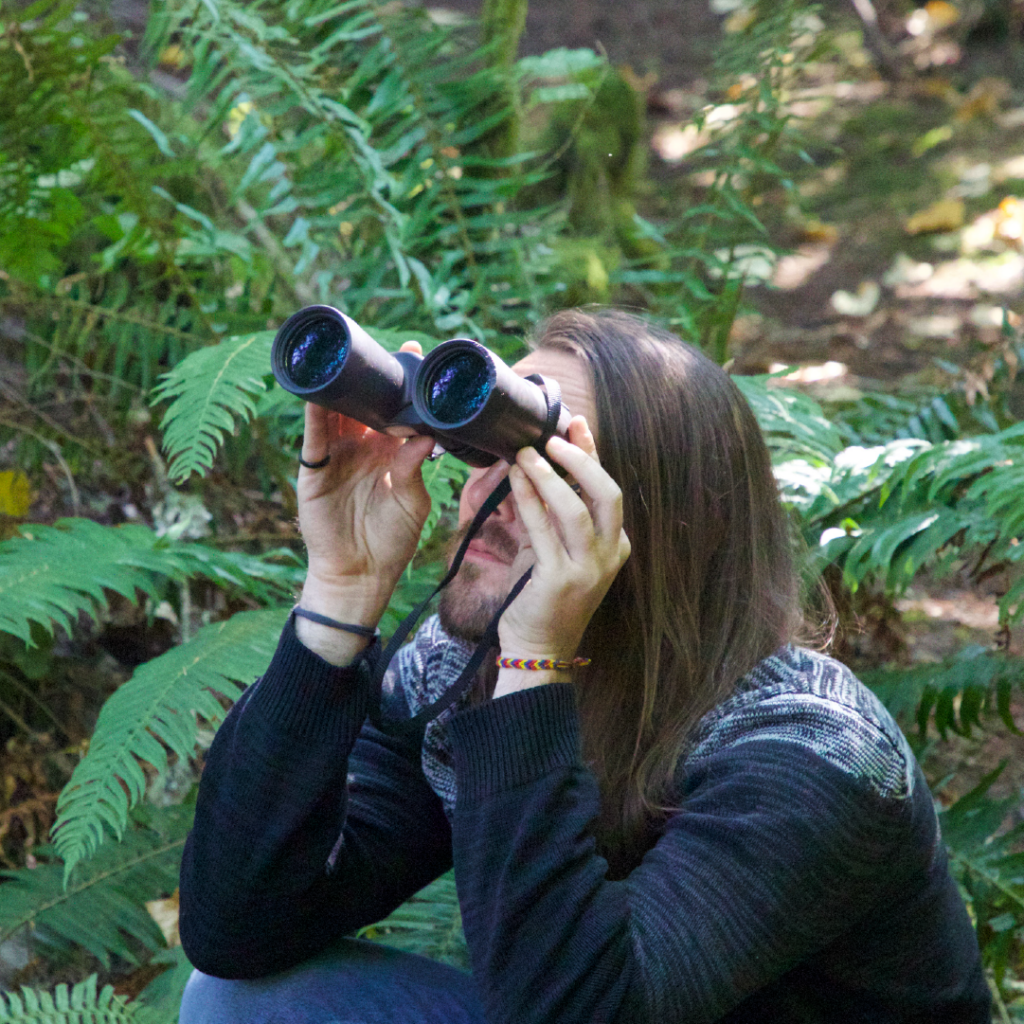
- Ancestral roots of Bird Language
- Sit Spot and other core routines
- Concepts of Bird Language
- Morning bird sit and mapping
April: Journaling Birds and Bird Language
Salish Sea Coast – Anacortes, WA
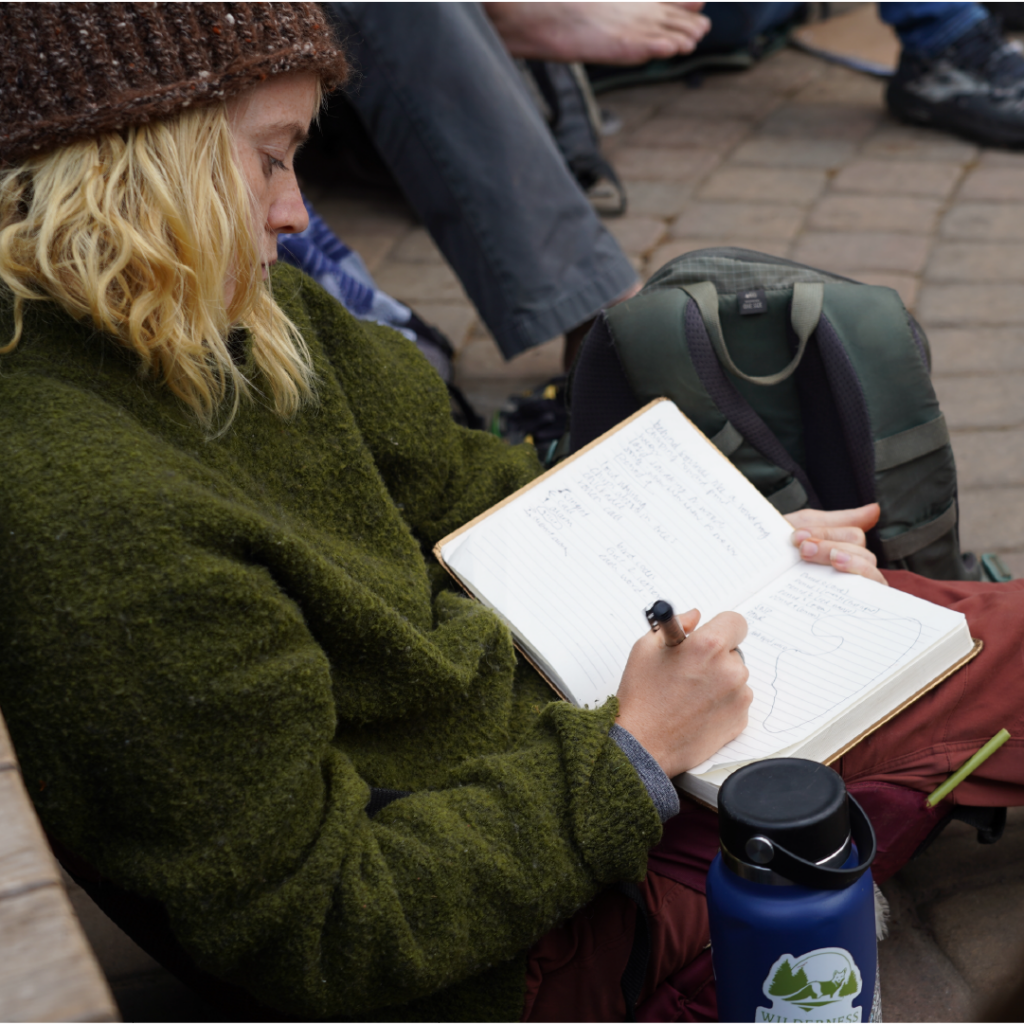
- Avian anatomy
- Field sketching techniques
- Mapping skills – visual and sound mapping
- Visual alarms/bird body language
May: The Art of Listening and Birding by Ear
Yakima River Valley – Ellensburg, WA
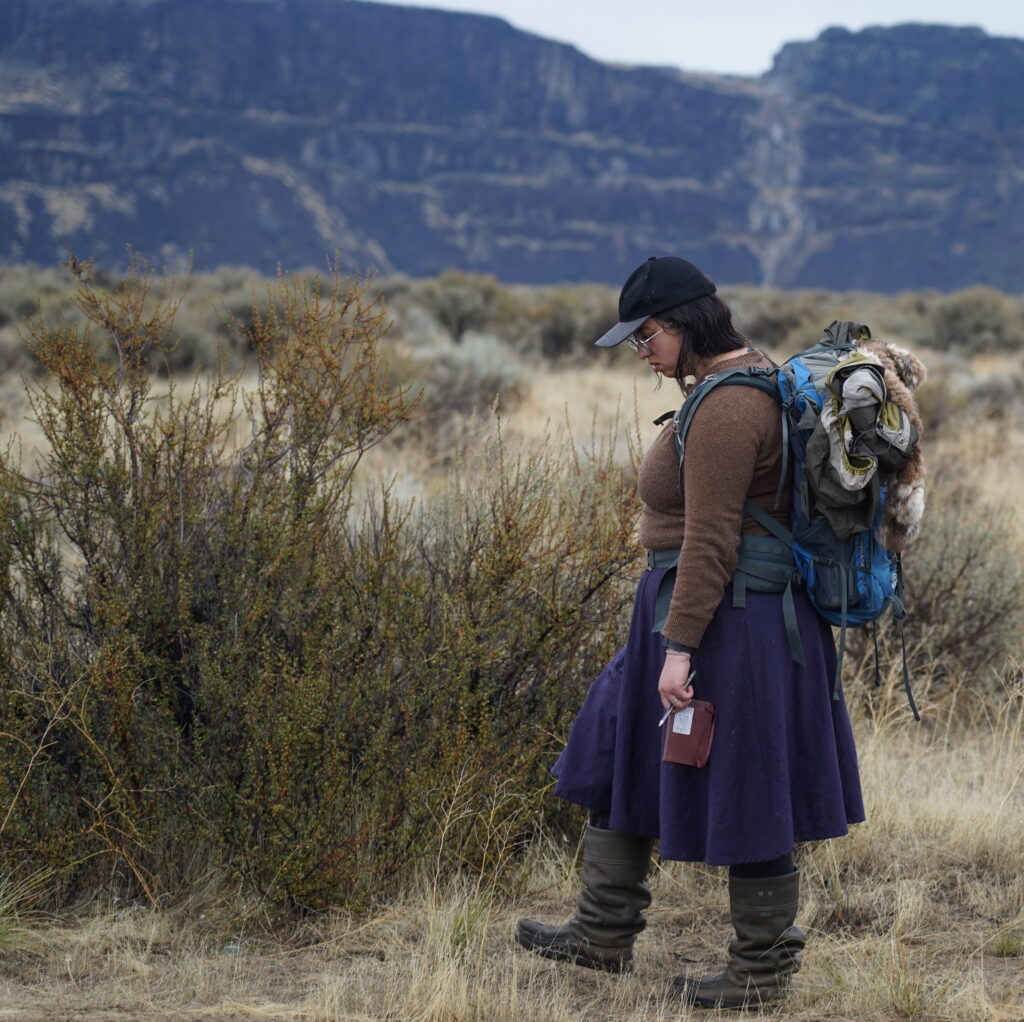
- Advanced songbird vocalizations
- East side birds and ecology
- Open country Bird Language
- Sound-based walks, sits, and mapping
June: Sensory Awareness and Cultivating Intuition
Snoqualmie Valley – Duvall, WA
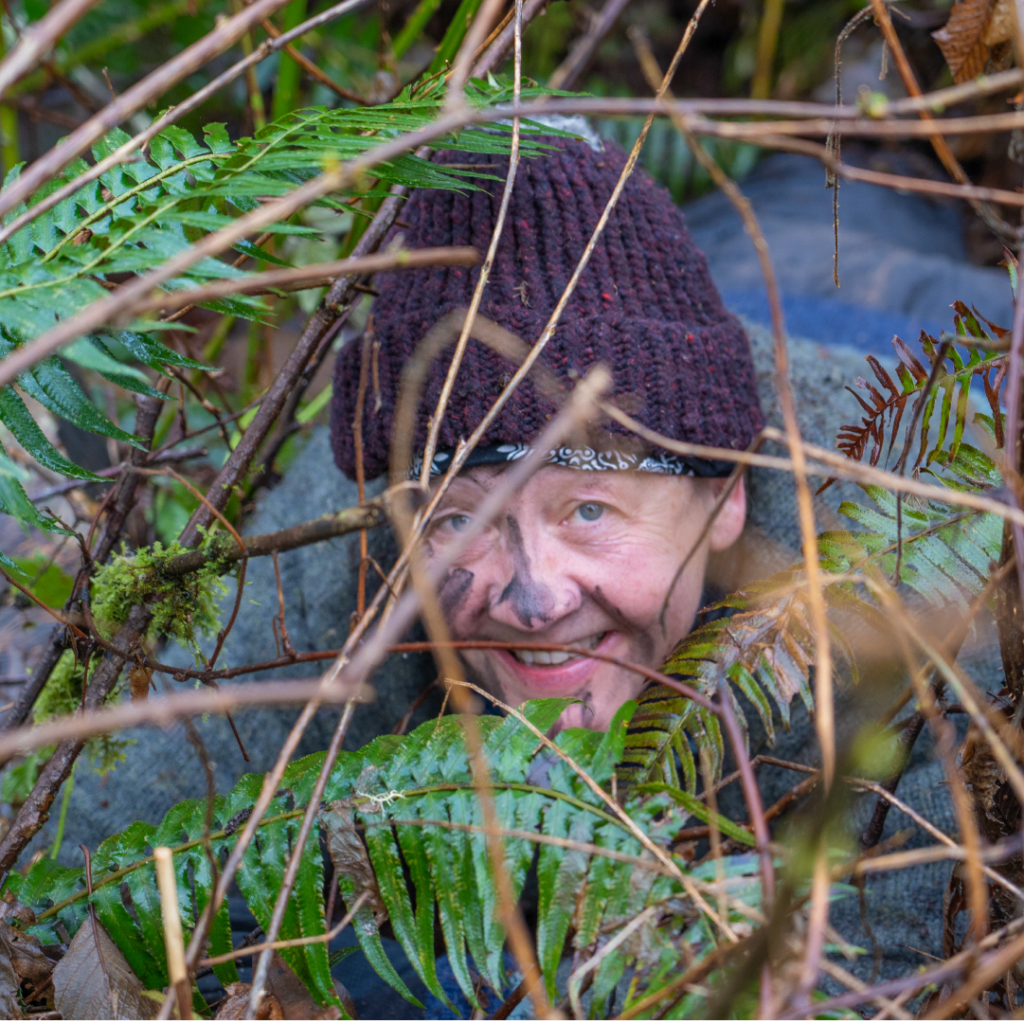
- Honoring routines and concentric rings
- Routines of invisibility
- The role of gratitude in naturalist studies
- Awareness games and activities
July: Forest Ecologies and Naturalist Skills
Cascade Mountains – Easton, WA
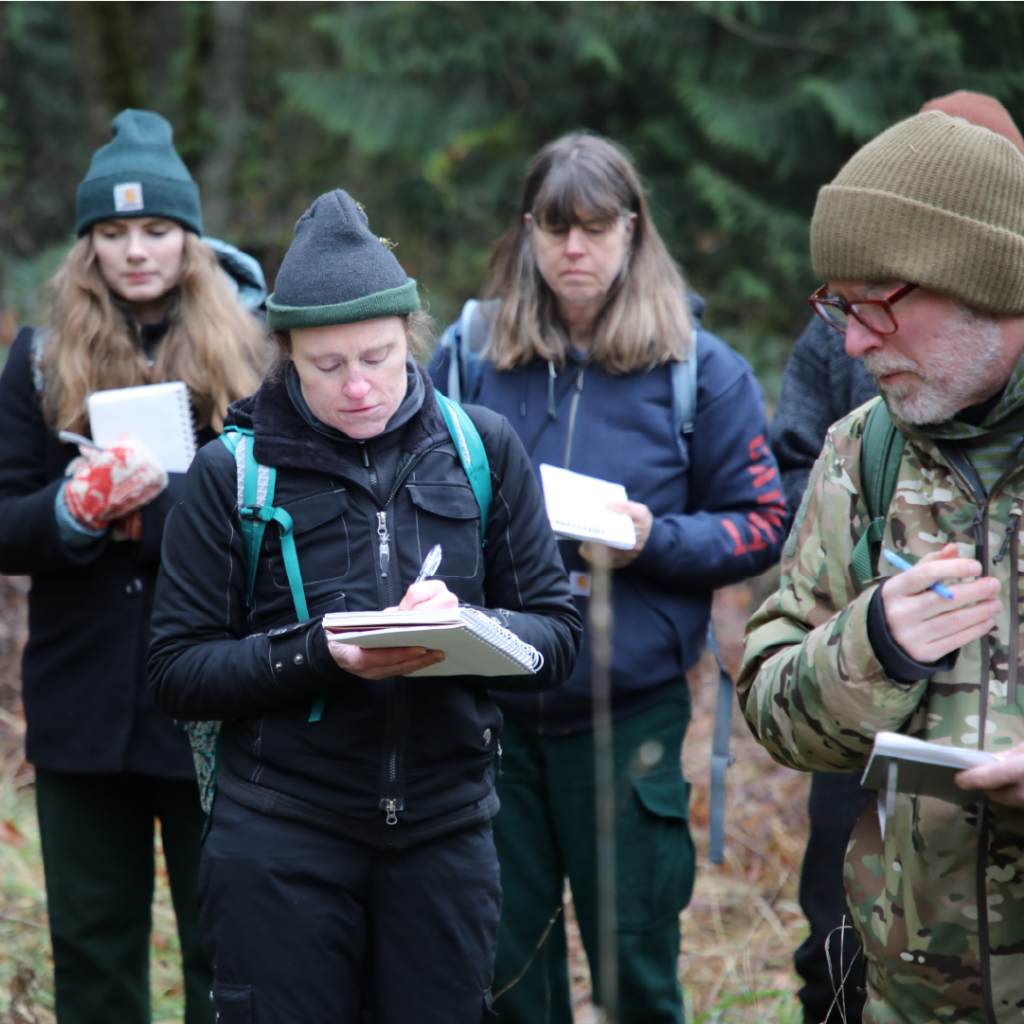
- Bird ID
- Native plants of the region
- Non-bird vocalizations
- “Nature museum” artifact exploration
August: Advanced Sensory Awareness and Intuition
Snoqualmie Valley – Duvall, WA
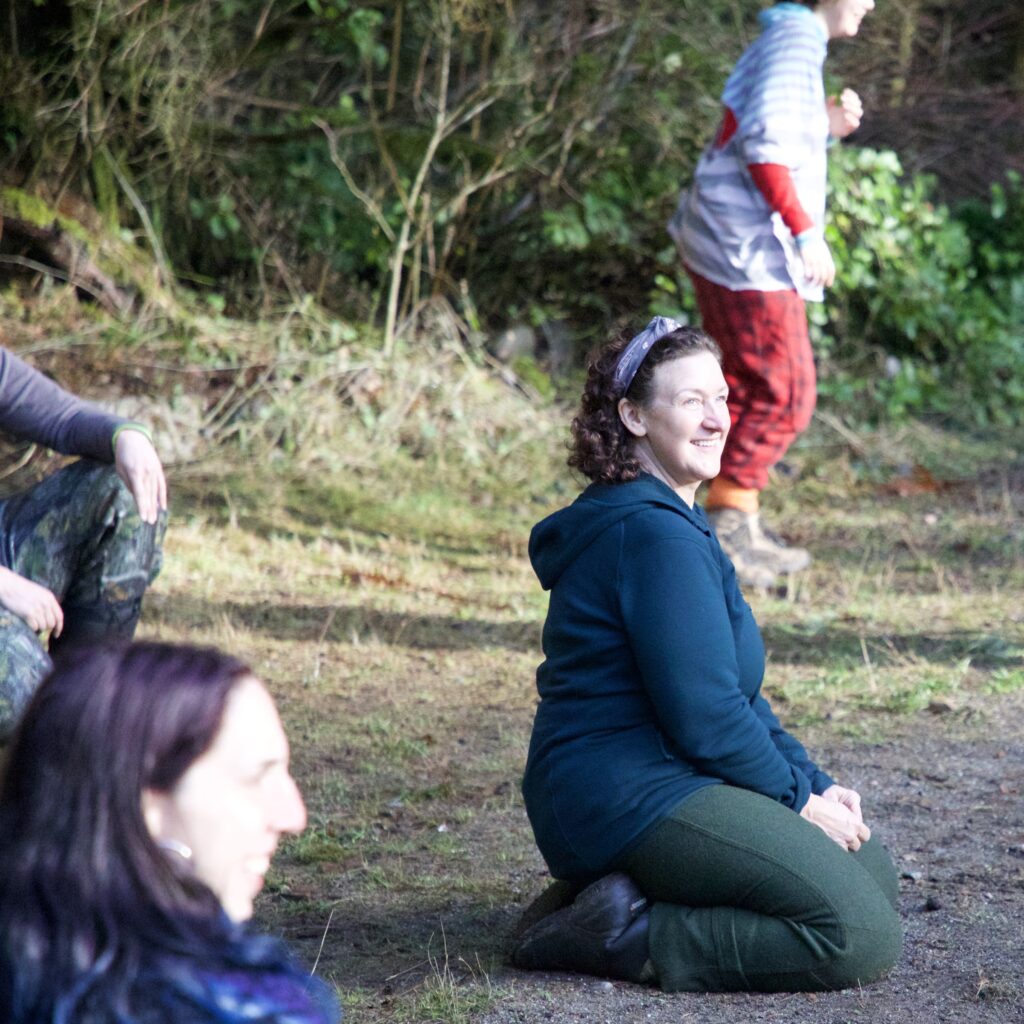
- Body radar and mindfulness
- Internal baseline/disturbance practices
- Sensory-tapping activities and games
- Deep Bird Language
September: Advanced Disturbance Patterns: Predators and Landscapes
Methow Valley – Winthrop, WA
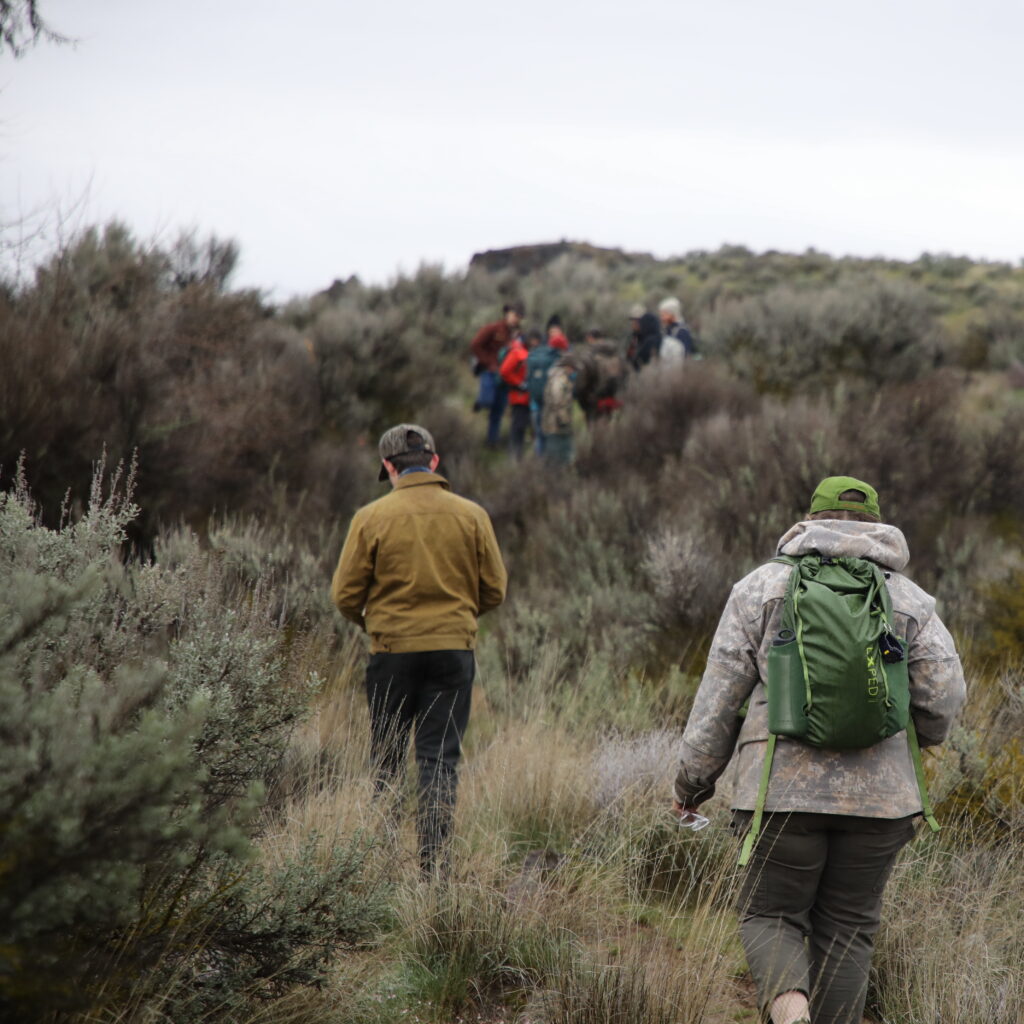
- Raptors and Corvids
- Open country bird sit and mapping
- Predator-specific Bird Language patterns
- Unique factors of Bird Language in the landscape
October: Wrapping the Bundle and Closing
Snoqualmie Valley – Duvall, WA
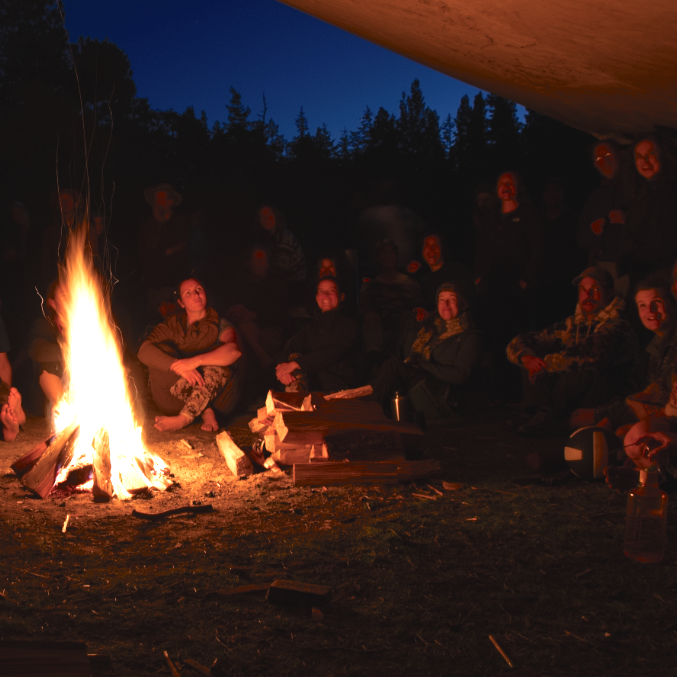
- Sit Spot story circle
- Closing celebration
- Bird-based games and activities
- Final Bird Sit and mapping
Meet Your Instructors:
Heather Durham
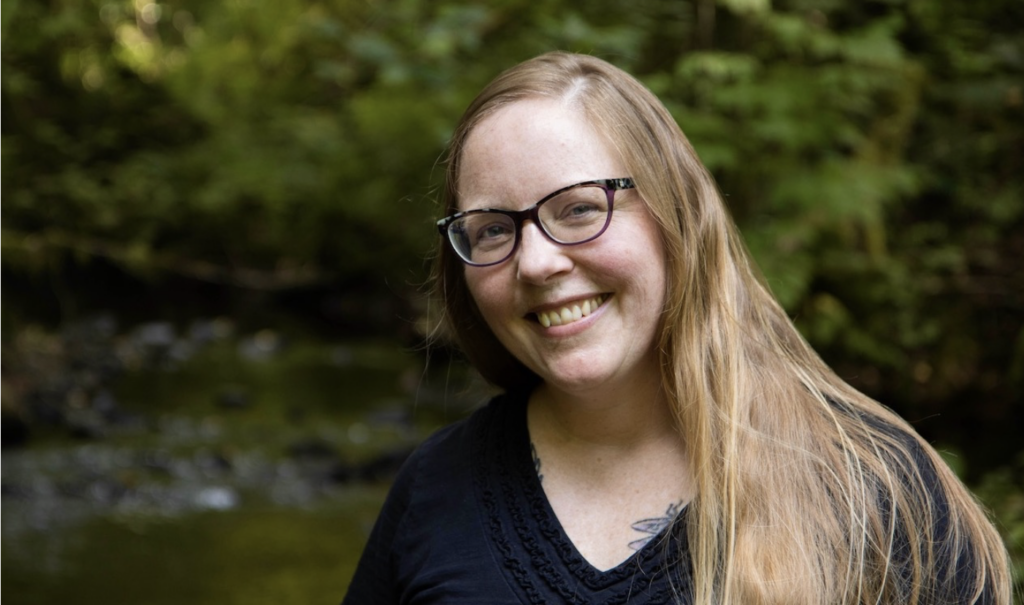
After completing several naturalist training programs, a Master of Science in ecology, The Immersion, Tracking Intensive, and spending much of her adult life working in the fields of environmental education, wildlife conservation, and natural areas restoration, Heather typically considers herself a non-specific naturalist, a generalist in her relationship with the natural world. However, when it comes to birds, she’s crossed the line to enthusiast bordering on obsessive bird-nerd. In addition to attending regular bird walks and short courses, Heather spent several years helping with breeding bird point count surveys for the Audubon Society of Portland and several parks departments, has led birdwalks for multiple organizations, and helped start the Bird Language Club at Wilderness Awareness School.
When not out birding, Heather works behind the scenes at Wilderness Awareness School as bookkeeper and bookstore manager. She is also the author of two nature memoirs available in our bookstore : Going Feral: Field Notes on Wonder and Wanderlust, and Wolf Tree: an Ecopsychological Memoir in Essays, both of which include adventures and immersions in the wonderful world of birds.
Jesse Phillips
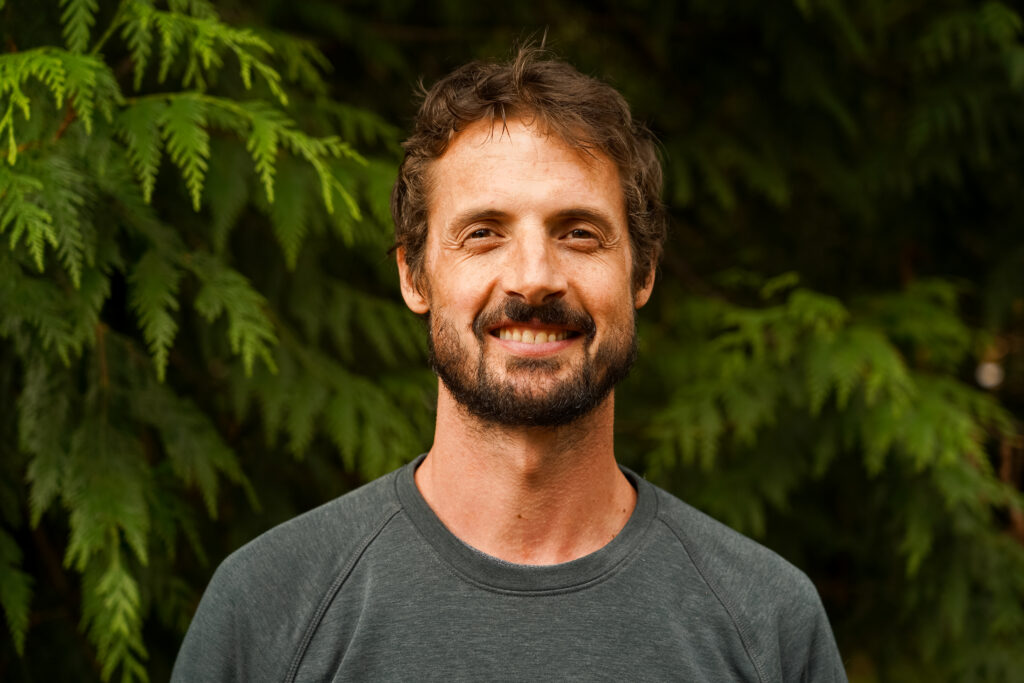
Jesse Phillips spent his college years studying the relationship between nature and human culture. He graduated with an honors degree in Environmental Writing and Philosophy from Whitman College, then designed a summer camp and took over a small farm business to live his passion for connecting and playing with people, plants, food, and wildlife. Jesse is a graduate of various Wilderness Awareness School programs, including The Immersion, the Tracking Intensive, and the Nature Instructor Training, which he now instructs. He has mentored youth and adults at WAS since 2014, and his work feeds his passion for crafting healthy learning cultures that honor the rhythms of nature inside and outside our wild selves. As a mentor, Jesse has always loved learning with humans of all ages–in classrooms, tutoring centers, gyms, gardens, farm and sports fields, and in forests. He enjoys honing his skills in firemaking, bird language, game design, nonviolent communication, riparian restoration, and the art of wandering. When he’s not work-playing in the woods, you can find Jesse going camping, practicing hip hop dance, playing spikeball, or tending the local food forest.